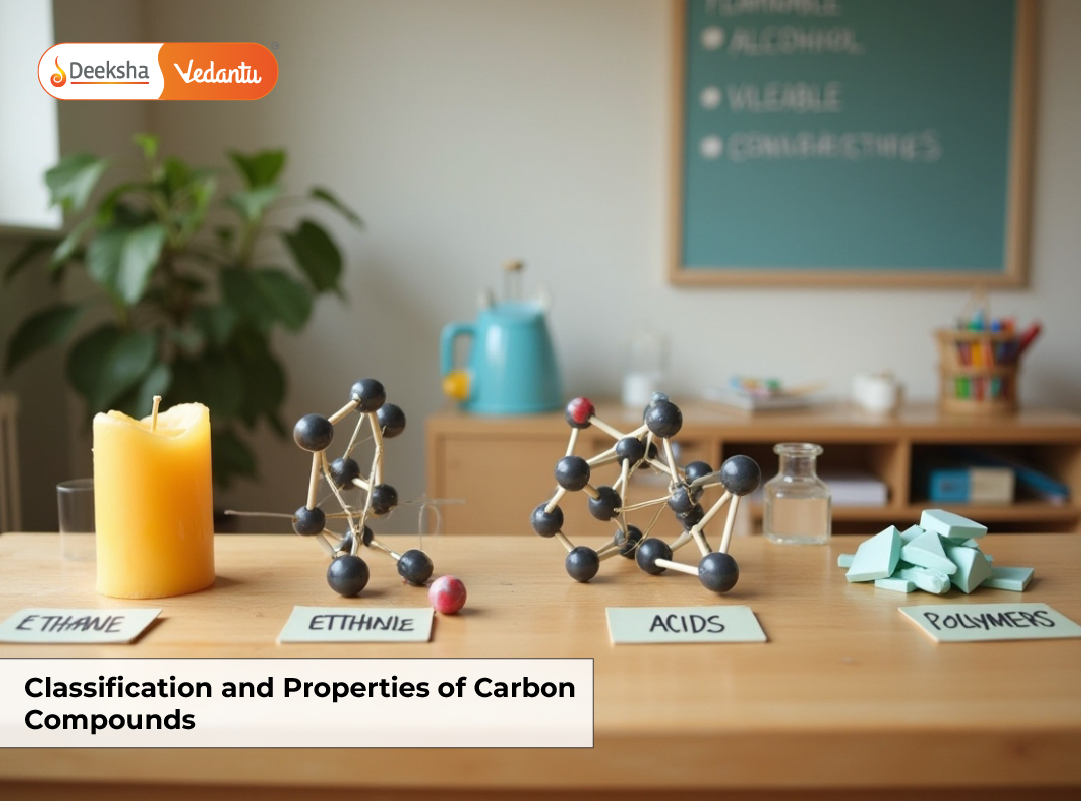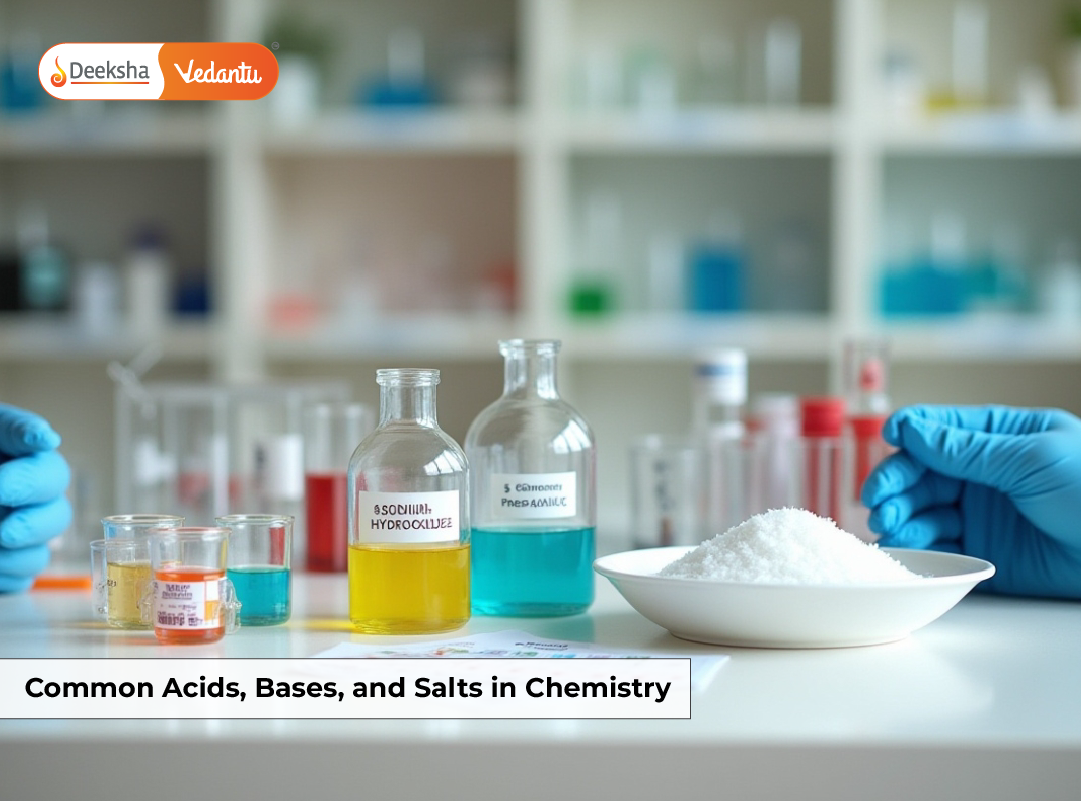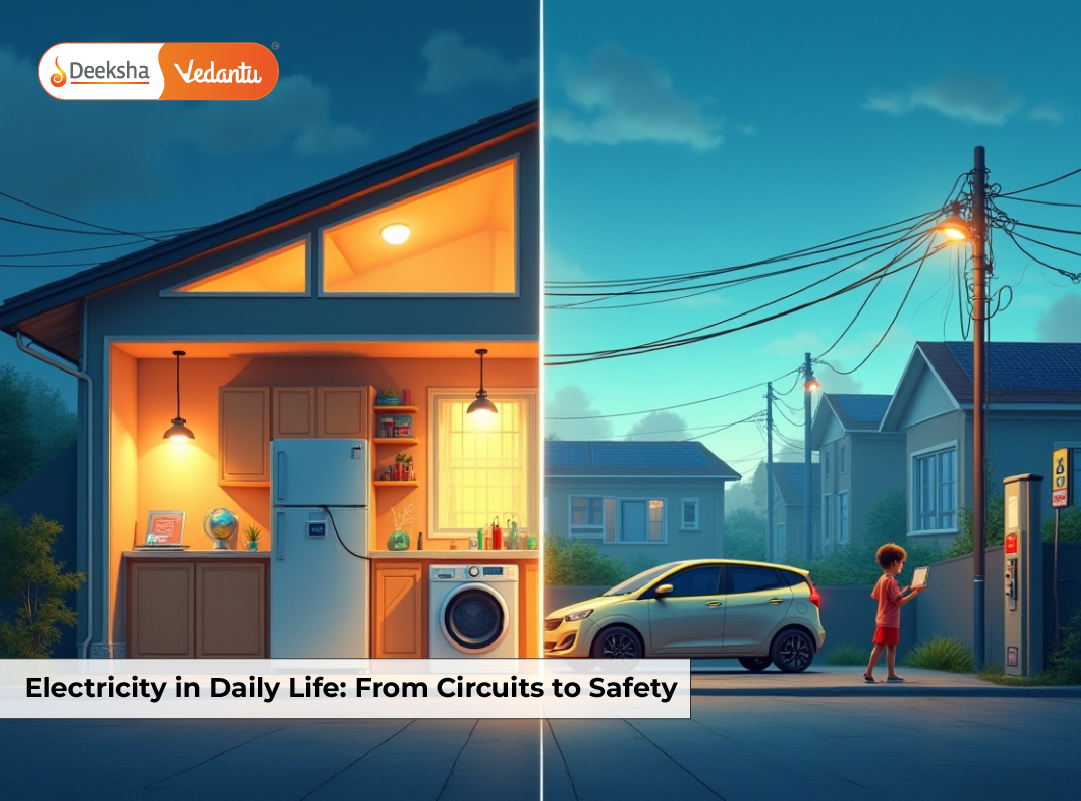Choosing the right course after completing the 10th grade is a pivotal decision that can set the foundation for a student’s future career and academic journey. It is a time of significant transition, where students often find themselves at crossroads, wondering “what to do after 10th?” and “how to choose a career after 10th?”. This critical decision not only influences their immediate educational path but also shapes their long-term professional prospects. Understanding the vast array of courses after 10th and navigating through the multitude of career opportunities they present can be daunting. This is where informed guidance becomes indispensable.
This article aims to shed light on the various avenues available to students post-10th grade, providing a comprehensive overview of the courses, fields, and disciplines one can pursue. From academic courses that lead to university degrees to vocational training that prepares students for specific trades, the choices are vast and varied. Our goal is to equip you with the knowledge and insights necessary to make an informed decision that aligns with your interests, strengths, and career aspirations.
At Deeksha, we understand the importance of this decision-making process and offer integrated coaching programs designed to support students in their journey. Our approach combines rigorous academic preparation with competitive exam coaching, tailored to each student’s chosen field, be it science, commerce, or specific competitive exams. We are committed to guiding each student towards a fulfilling educational and professional path, ensuring they are well-prepared to excel in their chosen courses after the 10th. Through this article, let us explore together the possibilities that lie ahead, and discover how Deeksha can play a pivotal role in your academic and career success.
Ultimate preparation guide for CBSE class 10th
Understanding Different Streams and Their Significance
Upon completing the 10th grade, students stand before a multitude of streams, each opening doors to distinct career paths and opportunities. The decision on which path to embark upon hinges on a student’s interests, aptitude, and career aspirations. The major streams available after the 10th include Science, Commerce, and Diploma courses. Understanding these streams and their relevance is crucial for making an informed decision that aligns with one’s future goals.
Science: This stream is an ideal choice for students with a keen interest in subjects like Physics, Chemistry, Biology, and Mathematics. Opting for Science after the 10th can lead to careers in medicine, engineering, research, environmental science, and much more. It’s a path that offers a broad spectrum of competitive exams like JEE / KCET for engineering aspirants and NEET for those aiming to enter the medical field.
Commerce: For those fascinated by the world of business, economics, finance, and accounting, the Commerce stream is the way forward. It lays the foundational knowledge required for careers in business management, chartered accountancy, banking, and finance. Commerce students can aim for competitive exams like CA, CS, and various entrance exams for B.Com and BBA courses.
Diploma Courses: Diploma courses offer practical knowledge and skill-based training in a specific field, ranging from Engineering to Fashion Design, and can be a quicker route into the workforce or further specialized studies. These courses are suitable for students who wish to dive directly into a profession or vocational training.
At Deeksha, we specialize in providing integrated coaching tailored to the needs of Science and Commerce students. Our programs are designed to not only cover the academic syllabus but also prepare students for their respective competitive exams. For Science stream students, we offer rigorous coaching for JEE, NEET, KCET and other science-related competitive exams. Commerce students receive specialized coaching designed to help them excel in CA, CS exams, and other commerce-related competitive examinations.
Our goal is to ensure that students not only excel academically but are also well-prepared to secure their places in desired professional courses and ultimately, in their future careers. Deeksha’s integrated approach combines the best of academic coaching with comprehensive competitive exam preparation, making it a beacon for students navigating the crucial decision of choosing the right field after the 10th.
Top Courses After 10th: An Overview
After the completion of the 10th standard, students encounter a major milestone in their educational journey—the choice of the next course of study. This decision is influenced by a myriad of factors, including individual interests, strengths, and career aspirations. A well-informed choice can set the stage for future success, and thus, it is essential to explore the options comprehensively. Below we discuss the top courses after the 10th standard, their career prospects, and how programs that align with these choices.
List Of Top 5 Best Streams After 10th Standard in 2024
As students across the globe usher in the academic year, the question of which stream to choose after the 10th standard remains as pressing as ever. The decision is more than just an academic choice—it’s the first step in carving out a future career path. With the world constantly evolving and new professions emerging, selecting the right stream is crucial. In this section, we’ll explore the top 5 best streams available after the 10th standard, each offering a unique set of opportunities and challenges designed to cater to the varied interests and strengths of young scholars. These streams not only open doors to conventional career paths but also pave the way for emerging roles in a future-driven job market.
Medical Stream:
- Subjects: Physics, Chemistry, Biology, English, and an optional subject like Psychology or Biotechnology.
- Career Path: This leads to careers in medicine, dentistry, pharmacy, veterinary sciences, and biomedical research.
Engineering Stream:
- Subjects: Physics, Chemistry, Mathematics, English, and an optional subject like Computer Science or Electronics.
- Career Path: Graduates often move into various engineering fields, such as mechanical, civil, electrical, or software engineering.
General Science Stream:
- Subjects: Physics, Chemistry, Biology, Mathematics, English, and an optional subject which could be from the humanities or arts.
- Career Path: This stream can lead to careers in research, scientific analysis, or combined fields like biotechnology or environmental science.
Arts (Humanities) Stream:
- Subjects: History, Political Science, Economics, English, and an optional subject such as Geography, Sociology, or Psychology.
- Career Path: The Arts stream opens careers in education, law, journalism, social work, and public administration.
Commerce Stream:
- Subjects: Accountancy, Business Studies, Economics, English, and an optional subject like Mathematics or Information Practices.
- Career Path: Students typically enter fields such as finance, economics, business management, chartered accountancy, and company secretaries.
Career Opportunities After Class 10
Continuing from the previous section, let’s delve into the career opportunities aligned with the subjects of study from the screenshot you provided.
Science Stream (Computer Science):
- Data Analyst: Specializes in interpreting complex datasets to help businesses make more informed decisions.
- Cyber Security Specialist: Protects information systems by ensuring security protocols are in place to prevent cyber attacks.
- Product/Industrial Design: Involves creating new products that are both functional and aesthetically appealing.
- Animation: Creates animated sequences for various media formats.
- Game Design/Developer: Designs the gameplay, environment, storyline, and characters of video games.
- Technical Writer/Content Writer: Produces clear and concise documentation for technical and non-technical content.
Science Stream (Physics, Chemistry, and Biology):
- Medicine: Doctors diagnose and treat illnesses and medical conditions.
- Dental Surgery: Dental surgeons specialize in oral health and surgery.
- Nursing: Nurses provide care and support for patients in a variety of healthcare settings.
- Physiotherapist: Offers therapy to patients to restore movement and function.
- Nutritionist: Advises on matters of food and nutrition impacts on health.
Science Stream (Physics, Chemistry, and Maths):
- Engineering/Manufacturing: Engineers design, develop, and maintain a wide range of products and systems.
- Environmental Science: Professionals in this field work on solutions to environmental problems.
- Robotics: Experts design and build robots that can perform a variety of tasks.
- Merchant Navy/Aviation: Careers in the operation of ships and aircraft.
- Software Development: Developers write, test, and maintain software programs.
- Architecture/Design: Architects design buildings and often contribute to the planning of communities.
Commerce Stream:
- Chartered Accountancy: Specialists in accounting, auditing, and tax.
- Financial Consulting/Planning: Advises clients on investments, tax laws, and insurance decisions.
- Stockbroking: Buys and sells stocks and other securities for clients.
- Insurance: Professionals help individuals and businesses manage risk to protect themselves from financial loss.
- Private Equity/Venture Capital: Involves investing in companies and helping them grow.
- Bank PO/Investment Banking: Bank Probationary Officers manage day-to-day operations of banks, while Investment Bankers deal with the financial aspect of managing large transactions for corporations.
- Actuary: Actuaries use mathematics, statistics, and financial theory to study uncertain future events.
Arts Stream:
- Civil Services: Government officials who administer public policy and programs.
- Law/Paralegal: Lawyers represent and advise individuals, businesses, and government agencies on legal issues and disputes.
- Clinical/Counseling/Sports Psychology: Psychologists work with clients to improve their well-being and mental health.
- Journalism/PR/Advertising: Journalists report news, while PR and advertising professionals manage public perceptions of businesses and products.
- Hospitality/Event Management: Professionals plan and organize events, and manage operations in hotels and restaurants.
- International Relations/Language Translator: Specialists in this field work with global issues and may translate languages for various purposes.
- Interior/Fashion/Jewellery Design: Designers create aesthetically appealing and functional designs for living spaces, clothing, or accessories.
- Digital Marketing/Sales/Marketing: Marketers promote and sell products or services online and offline.
- Commercial Artist: Artists create artwork for commercial purposes such as advertising.
- Content Writer/Author/Editor: Writers and editors produce and refine written content.
These career opportunities showcase the broad spectrum of professions that students can pursue based on their chosen stream and subjects. It’s important to note that these careers often require additional specialized education beyond the standard subjects listed, including college degrees, vocational training, and professional certifications.
Mastering math for top scores in 10th standard
Science Courses After 10th
Below is a structured table that outlines some of the popular science courses available after the 10th standard. Please note that actual courses and their details can vary based on the educational system, and institution offering the courses.
| Course Type | Career Options | Eligibility | Duration | Key Skills Developed | Risks | Salary Range (INR) |
| Higher Secondary Science (PCM) | Engineer, Physicist, Mathematician | Successful completion of 10th standard with a focus on science and maths | 2 years | Analytical skills, quantitative skills, problem-solving | Highly competitive field, requires further education for substantial careers | Varies widely after further education |
| Higher Secondary Science (PCB) | Doctor, Biologist, Pharmacist | Successful completion of 10th standard with a focus on science | 2 years | Critical thinking, research skills, attention to detail | Highly competitive, requires extensive further education | Varies widely after further education |
| Diploma in Information Technology | IT Support, Network Administrator | Class 10 Pass with Maths & Science | 1-2 years | Technical skills, problem-solving, programming | Rapid technological changes require continuous learning | 10,000 – 30,000 per month |
| Diploma in Nursing | Registered Nurse, Healthcare Provider | Class 10 Pass with Science | 3-4 years | Empathy, patient care, medical knowledge | Emotional and physical demands, shift work | 15,000 – 35,000 per month |
| Diploma in Clinical Lab Technology | Lab Technician, Pathology Assistant | Class 10 Pass with Science | 2-3 years | Attention to detail, technical skills, analysis | Exposure to chemicals and biological samples | 10,000 – 25,000 per month |
| Diploma in Engineering (various streams) | Technician, Junior Engineer | Class 10 Pass with Maths & Science | 3 years | Technical skills, mathematical skills, innovative thinking | Technical fields can be sensitive to economic cycles | 10,000 – 30,000 per month |
Commerce Courses After 10th
Below is a structured table that outlines some of the popular commerce courses available after the 10th standard. Please note that actual courses and their details can vary based on the educational system, and institution offering the courses.
| Course Type | Career Options | Eligibility | Duration | Key Skills Developed | Risks | Salary Range (INR) |
| Higher Secondary Commerce | Accountant, Business Manager, Economist | Successful completion of 10th standard with a focus on maths | 2 years | Analytical skills, business acumen, financial literacy | Subject to economic fluctuations, competitive | Varies widely after further education |
| Diploma in Business Management | Business Administrator, Entrepreneur | Class 10 Pass | 1-2 years | Leadership, strategic planning, management skills | Sensitive to business cycles, market competition | 10,000 – 25,000 per month |
| Diploma in Accountancy | Junior Accountant, Accounts Assistant | Class 10 Pass | 1-2 years | Financial reporting, tax knowledge, accuracy | Need for continuous update with tax laws and regulations | 8,000 – 20,000 per month |
| Diploma in Retail Management | Retail Manager, Store Manager | Class 10 Pass | 1-2 years | Customer service, sales skills, inventory management | Varies with retail market trends, customer preferences | 10,000 – 22,000 per month |
| Diploma in Banking and Finance | Bank Teller, Finance Assistant | Class 10 Pass | 1-2 years | Financial knowledge, customer service, numerical skills | Vulnerable to financial market risks | 10,000 – 25,000 per month |
| Certificate Course in Stock Market | Stock Broker, Market Analyst | Class 10 Pass | 6 months – 1 year | Analytical skills, market knowledge, risk assessment | High risk associated with market fluctuations | Varies, can be commission-based |
Science vs Commerce After Class 10
The crossroads of Science versus Commerce after class 10 is more than a mere academic choice—it’s a direction-setting decision that can shape students’ futures. Science, with its roots in empirical evidence and quantitative analysis, offers pathways into medicine, engineering, and technology. Commerce, on the other hand, delves into the dynamics of business, economics, and fiscal management, serving as a gateway to careers in finance, marketing, and entrepreneurship. Both streams boast their own merits, challenges, and unique sets of opportunities that cater to different skill sets and professional aspirations. This comparative analysis aims to dissect the nuances of each, providing clarity to students teetering on the edge of this vital educational juncture. Let’s dive into the top 20 difference between the two streams.
| Criterion | Science Stream | Commerce Stream |
| Core Subjects | Physics, Chemistry, Biology/Maths | Accountancy, Business Studies, Economics |
| Career Paths | Medicine, Engineering, IT, Research | Business, Finance, Accounting, Management |
| Nature of Study | Experimental, Analytical | Theoretical, Conceptual |
| Focus Area | Scientific exploration, Technology | Economic principles, Market dynamics |
| Skill Development | Analytical, Problem-solving | Strategic thinking, Financial literacy |
| Typical Degrees | B.Sc, MBBS, B.Tech | B.Com, BBA, CA, CS |
| Competitive Exams | JEE, NEET, AIIMS | CA Foundation, CS Foundation |
| Practical vs Theoretical | More lab work and experiments | More theoretical and analytical study |
| Industry Sectors | Healthcare, Technology, Research | Banking, Trade, Management, Consulting |
| Entrepreneurial Opportunities | Tech startups, Biotech | Commerce ventures, Service firms |
| Flexibility in Career | Specific to scientific fields | Broad scope for career switching |
| Global Opportunities | Tech and research positions worldwide | Global finance and business roles |
| Research Opportunities | Significant in pure and applied sciences | Market and economic research |
| Technological Inclination | Integral to the stream | Used as a tool for business processes |
| Professional Certifications | Specialized certifications in tech areas | CA, CS, CMA |
| Graduate Outcomes | Scientists, Engineers, Healthcare Professionals | Business Analysts, Accountants, Marketers |
| Economic Impact | Innovation and development driven | Market and economy driven |
| Graduate Studies | Often specialized in a field of science | Diverse, including MBA, M.Com |
| Interdisciplinary Opportunities | Possible, with fields like Bioinformatics | Combines with Law, IT, etc. |
| Subject Combinations | Usually focused on STEM | Can combine with Arts or IT |
How to Make the Right Choice: Factors to Consider
Making the right educational choice post-10th grade can seem tough at first, especially when students are confronted with the question, “which is the best course after the 10th class?” or “how to choose a career after 10th?”. It’s a critical decision that shapes the future, and hence, it’s essential to weigh in several factors before arriving at a decision.
Interests and Passions:
Students should start by reflecting on their interests and passions. What subjects captivate your attention? Do you enjoy working with numbers, or does the complexity of living organisms fascinate you? Identifying subjects that you are passionate about is the first step towards a fulfilling career path.
Strengths and Skills:
Acknowledging your strengths and areas of proficiency can guide you towards a stream that complements your natural abilities. A student with a knack for problem-solving and analytical thinking may thrive in engineering, while someone with strong interpersonal skills might find a rewarding career in marketing.
Career Opportunities and Prospects:
Researching potential career paths that stem from different streams is vital. Students must consider the future job market, the demand for specific roles, and the economic viability of various professions. It’s not just about the immediate aftermath of the 10th grade but where a particular stream can lead you five or ten years down the line.
Guidance and Support Systems:
The role of guidance cannot be discarded in making these pivotal decisions. This is where our specialized program, Deeksha Scholastic Aptitude Test (dSAT) comes into picture. dSAT is designed to help students make informed choices by assessing their aptitudes and interests through a structured process.
Deeksha Scholastic Aptitude Test (dSAT):
dSAT is a tailored test open exclusively to students in the 10th grade, consisting of four key components:
- Concept-Based Lecture (60 Min): This part of the test offers students a glimpse into subject matter that aligns with potential career paths, helping them gauge their interest and understanding of the subjects.
- Aptitude Test: By measuring a student’s aptitude in various domains, dSAT can pinpoint strengths and potential fields of study that match their skill set.
- Course Recommendation: Based on the aptitude test results, dSAT provides personalized course recommendations, aligning students with streams that complement their abilities and interests.
- One-on-One Counseling: Perhaps the most crucial element, this personalized counseling session delves into the results, providing clarity and guidance on the next steps for the student’s academic and career trajectory.
dSAT’s rigorous and refined selection process ensures that only the top and most promising students are chosen, reflecting Deeksha’s commitment to quality education and guidance. The test also includes parent orientation to align expectations and facilitates scholarships for meritorious students, ensuring that career decisions are made judiciously.
Incorporating dSAT into the decision-making process can alleviate much of the confusion faced by students after the 10th grade. It provides a data-driven and personalized approach to choosing the right career path, making dSAT an integral part of the student admission process at Deeksha. With dSAT’s comprehensive assessment, students and their parents can navigate the crossroads of career decisions with confidence and clarity.
Success habits of top-performing class 10th students
The Journey and Choice of a Lifetime
The journey after the 10th standard is a crucial turning point in a student’s life, with the decision of what to choose after the 10th shaping the trajectory of their future. Exploring the vast expanse of career courses after the 10th is both an opportunity and a challenge. It’s about aligning one’s passions with practicality, strengths with study, and dreams with discipline. In this pivotal phase, informed decision-making is key to ensuring that each step taken is a step toward success and satisfaction.
Deeksha stands as a guiding light on this path, offering a compass to navigate the sea of choices. Our mission is to empower students with the knowledge, skills, and insight needed to make these significant decisions. With tailored programs that cater to various academic interests and competitive exam preparations, Deeksha is not just an institution; it’s a partner in the educational journey of young aspirants.
We encourage students and parents to engage with the opportunities Deeksha has to offer. Whether it’s gaining clarity on academic paths with our Deeksha Scholastic Aptitude Test (dSAT) or diving deeper into our integrated coaching programs, we are here to support you.
Take the first step towards a brighter future by exploring what Deeksha can do for you. Reach out to us for personalized guidance that lights the way to your academic and career aspirations. The time to act is now—your future awaits.
Table of Contents















Get Social